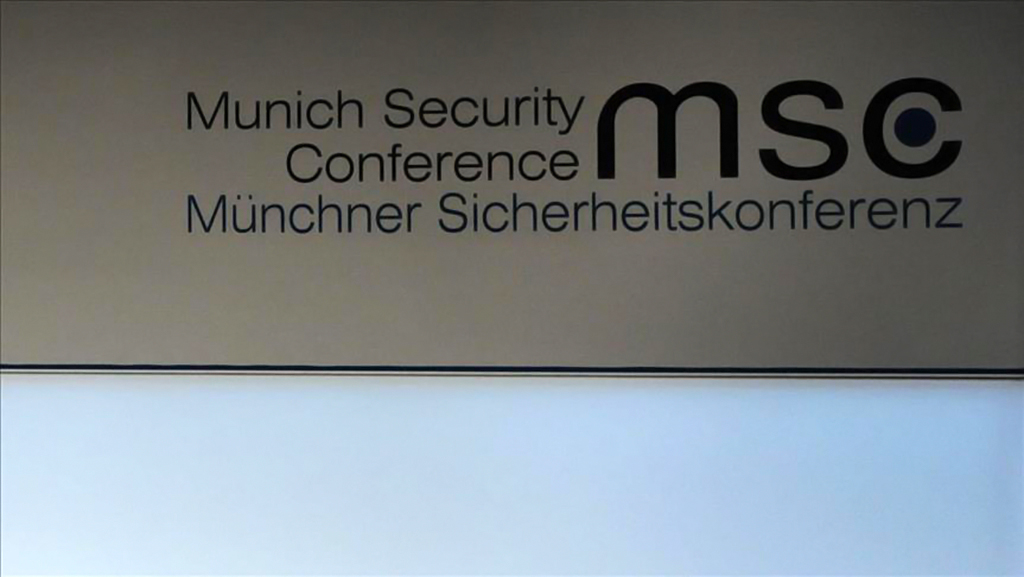Playing old politics in the new game is dangerous
The world system has undergone a large-scale transition for the last two decades. The ultimate victory of the United States declared after the collapse of the Soviet Union in 1991 lasted only for a decade. In spite of giving an effective answer to the Sept. 11 terrorist attacks, the U.S. has been unable to maximize its national interests at the global scale and provide international peace and stability.
More


Rising tension between global and middle powers
Today, we are living in a systemic transition period in which the world is experiencing an international systemic crisis. Deep uncertainty and instability have been dominating the global system. The rivalry between global powers has been intensifying every day. Unfortunately, there is no established international order and no stable relationship between even members of the same alliance. Most hostilities and friendships are temporary; relations between any two states can change quickly.
More
China brokered a historical agreement on March 10 that aims to restore the conflictual relations between Saudi Arabia and Iran. The trilateral joint statement was signed by Ali Shamkhani, secretary of the Supreme National Security Council of Iran, Saudi National Security Advisor Musaid bin Muhammed Al Aiban, and Chinese top diplomat Wang Yi, director of the Foreign Affairs Commission Office. Considering its influence in the region and international politics, this mediation effort and agreement is a diplomatic victory for China.
President Erdoğan’s handshake with Egypt's el-Sissi eliminated a symbolic obstacle; yet, intelligence services and diplomats will have to engage in additional diplomatic contact to further the normalization process between Ankara and Cairo
As a reflection of classical realism, global powers act solely based on their selfish and pragmatic concerns, which put all other states in a dangerous position. Small and weak powers have to take measures against all states, enemy and friend alike
The West’s policy of otherization and alienation toward Türkiye, a 70-year NATO member, especially in the regional crises of Syria, EastMed and Karabakh is the result of Ankara’s claim for regional leadership and an autonomous global status
Turkmenistan visit and Turkic world's search for integration
President Erdoğan's recent visit to Turkmenistan provides significant clues about the Turkic world's goals and perspectives
More


The ironic legacy of the 9/11 attacks
The 9/11 terrorist attacks were one of the turning points in the history of international relations. The legacy of the attacks has dominated the international system for almost two decades and triggered events and transformations that may have more long-term ramifications.
More
For both NATO and the U.S., Turkey happens to play an active role on a multitude of fronts – whether it’s Russia and China, the Middle East and North Africa (MENA), or the Caucasus and Central Asia.
For scholars and observers, the return of the great power rivalry is the new normal in international relations over the last couple of years. The competition and rivalry between the U.S. and China are being closely watched by the international community. It is a well-known fact that the relations between these two major powers will be determinative of the future of world politics.
Turkey has been following a two-track foreign policy for the last two decades. On the one hand, Turkey has been following an Ankara-centered and relatively independent foreign policy. After the collapse of the bipolar world, Turkey, similar to many other countries, has been trying to increase autonomy in its foreign policy.
This week some unexpected developments have occurred in international politics which signaled the direction of change in the international system.
The Munich Security Conference is an influential platform where global security trends are discussed every year by academics and policymakers.
The U.S.' withdrawal from Syria is a significant step that will influence the future of the Syrian crisis.
The world powers are stuck in domestic and foreign crises, struggling to deal with rising problems and damaging the balance in world politics
The Trump administration must adopt a reasonable policy both in domestic and foreign platforms and not allow the world to become a place where every actor loses in the end
Turkey's ascendancy as a middle power and regional play-maker in the Middle East went pretty well up until 2011 but has faced multifaceted difficulties and challenges afterward, especially in the wake of the escalation of the Syrian civil war.
Last week, Xi made a historic visit to the United Kingdom. Xi received a very warm welcome from Queen Elizabeth II and the British government. For some, this visit is the beginning of a golden era in bilateral relations between the two countries. For others, this rapid improvement may create some problems in Britain's relations with its traditional allies.
Turkey could be very active in pushing for a better deal from the IMF and the World Trade Organization (WTO) for developing countries in the context of crisis prevention strategies and the advancement of the Doha Development Agenda.
Turkey's policy entrepreneurship within the G-20 has been weaker compared to similar middle powers, but holding the rotating presidency presents a golden opportunity to upgrade its activism in economic diplomacy platforms.

















